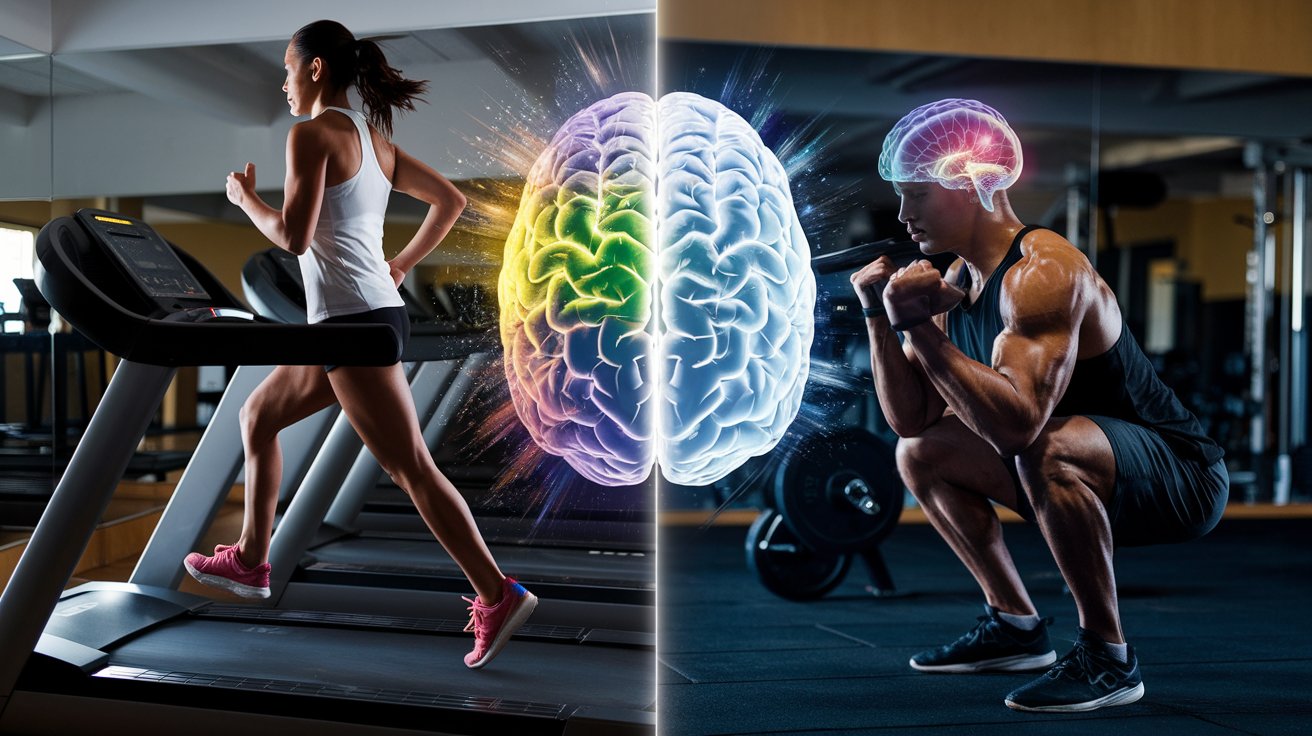
The Hidden Brain Benefits of Different Exercise Types: Beyond Building Muscle
Many people believe weightlifting is solely for building muscle while cardio is the go-to for brain health. However, research reveals a more nuanced picture of how different exercise types influence our mental wellbeing.
Cardiovascular Exercise: The Immediate Brain Booster
Cardiovascular activities like running, swimming, and cycling create powerful changes in brain chemistry within just 30 minutes. During moderate cardio, the brain experiences a surge of crucial neurotransmitters - dopamine, serotonin, and norepinephrine - creating that familiar post-exercise mood elevation.
Advanced brain imaging has revealed that regular cardio strengthens the connection between the prefrontal cortex and amygdala, essentially upgrading the communication between our emotional control center and alarm system.
Long-term Mental Health Benefits
Regular cardio exercise reduces depression risk by 17% compared to sedentary lifestyles. The sweet spot for mental health benefits appears to be 150-300 minutes of moderate activity or 75-150 minutes of vigorous activity weekly.
Strength Training: The Underappreciated Brain Enhancer
Strength training - whether through weightlifting, resistance bands, or bodyweight exercises - triggers unique brain changes that complement cardio's effects. It stimulates IGF-1 production and enhances synaptic plasticity, while also helping regulate stress hormones.
Inflammation and Cognitive Function
Perhaps most intriguingly, resistance training significantly reduces brain inflammation markers like C-reactive protein and TNF-alpha. This anti-inflammatory effect may help protect against various mental health conditions and cognitive decline.
Combining Both for Optimal Results
The research suggests that combining both exercise types provides the most comprehensive brain health benefits:
For Immediate Results:
Cardio offers the quickest mood enhancement, with effects lasting 2-3 hours post-exercise.
For Long-term Benefits:
-
Cardio excels at anxiety reduction
-
Strength training boosts self-esteem
-
Combined training provides the strongest depression protection1
For Cognitive Enhancement:
While cardio benefits memory and learning speed, strength training improves executive function and attention. Together, they create a powerful defense against cognitive decline.
Practical Implementation
Whether you're a beginner or experienced exerciser, consistency matters more than intensity. Start where you are and progress gradually. For beginners, a simple 6-week plan starting with basic walking and bodyweight exercises can build into a more comprehensive routine.
Remember that recovery is crucial - proper sleep and nutrition support both brain and body adaptation. If time is a constraint, break exercise into shorter sessions or combine strength exercises with daily activities.
The most effective exercise program is one you'll maintain consistently. By incorporating both cardio and strength training into your routine, you're not just building a stronger body - you're building a more resilient brain